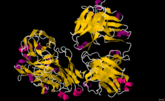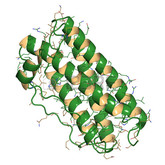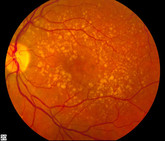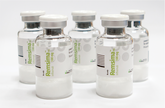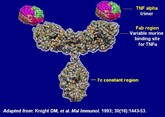Biosimilars
FDA delays meeting to evaluate infliximab biosimilar
The US Food and Drug Administration (FDA) has postponed a meeting of its Arthritis Advisory Committee, which was to discuss an infliximab biosimilar.
Biosimilars of rituximab
Last update: 8 January 2021
Rituximab is a chimeric monoclonal antibody against the protein CD20, which is primarily found on the surface of immune system B cells. Rituximab destroys B cells and is therefore used to treat diseases that are characterized by excessive number of B cells, overactive B cells or dysfunctional B cells. This includes many lymphomas, leukaemias, transplant rejection and autoimmune disorders.
Accord launches biosimilar filgrastim in Europe
Generics company Accord Healthcare (Accord) has announced the launch of their first European approved biosimilar Accofil (filgrastim), indicated for the treatment of chemotherapy induced neutropenia.
Generics and off-patent biologicals for cancer treatment in developing countries
The understandable focus on infectious diseases, such as human immunodeficiency virus (HIV), malaria and tuberculosis (TB), has meant that an increasing burden of non-communicable diseases (NCDs), notably cancer, now needs urgent attention across developing countries [1]. Generics and biosimilars offer a lower-cost approach to treatment, but these drugs raise challenges of their own.
Positive phase III data for Amgen adalimumab biosimilar
US biopharmaceutical giant Amgen announced on 3 February 2015 positive results from its phase III clinical trial for a biosimilar version of adalimumab in patients suffering from rheumatoid arthritis.
Hospira and Pfenex to collaborate on ranibizumab biosimilar
US-based injectables specialist Hospira and US biotechnology firm Pfenex announced on 10 February 2015 that they had entered into an agreement to exclusively develop and commercialize for worldwide sales PF582 (ranibizumab), Pfenex’s leading biosimilar candidate.
Biosimilars compared to generics in the European market
Once a patent expires, price competition is possible since any manufacturer can copy the originator product. This circumstance justifies the place in the pharmaceutical market for generics and biosimilars, i.e. off-patent medicines to be sold at lower prices than their originators [1].
FDA advisers to consider infliximab biosimilar
The US Food and Drug Administration (FDA) revealed in a Federal Register publication on 10 February 2015 that it has asked advisers to review a second biosimilar application.
Biosimilars of infliximab
Last update: 27 November 2020
Infliximab is a chimeric monoclonal antibody against tumour necrosis factor alpha (TNF-α). It is used to treat autoimmune diseases, such as ankylosing spondylitis, Crohn’s disease, psoriasis, psoriatic arthritis, rheumatoid arthritis, and ulcerative colitis.
Torrent licenses three ‘similar biologics’ from Reliance
Torrent Pharmaceuticals (Torrent) announced on 25 December 2014 that it had made an exclusive licensing agreement with fellow Indian drugmaker Reliance Life Sciences (Reliance) for the marketing of three ‘similar biologics’ in India.
